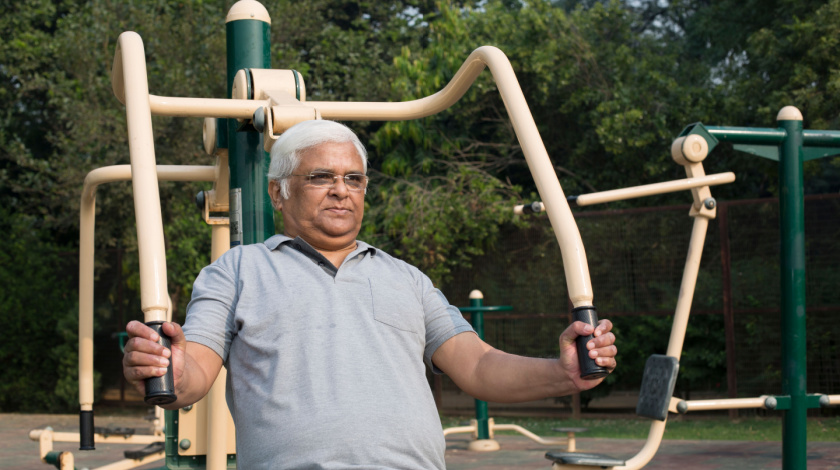Although obesity impacts the metabolic activities of the human body, it is not the only factor responsible for diabetes and other medical upheavals such as high blood pressure and cholesterol. It is also true that people with diabetes, especially those with type 2, can benefit from weight loss. Studies have shown that even a 2% weight loss provides significant improvement in the blood sugar levels. However, a word of caution—if you are taking insulin or diabetes medicines, you must consult your healthcare provider and diabetes educator before initiating the weight loss process. You also need a glucometer to monitor the glucose level frequently. Without medical supervision and handy tools, your weight management program can go for a toss.

Finding the Right Balance – Pointers & Tips
At the very outset, you need to understand the significance of weight management and why excess weight is a big issue. Mentioned below are some of the carefully compiled and essential tips to maintain a healthy weight vis-à-vis diabetes.
Introduction – The Significance of Weight Management in Diabetes
Here are some eye-opening medical facts.
If you have type-2 diabetes, reducing weight by 5% will translate into improved blood sugar levels. It means your dosage of daily medicines will drop. Some additional non-medical benefits include improved mood and freedom from several restrictions. On the other hand, if you have type-1 diabetes, most probably on a continuous glucose monitoring system, weight reduction will provide relief from frequent insulin injections/intake. It will also help you cast away from collateral health issues.
You need to understand that obesity is a risk factor and not the only factor causing diabetes. Managing body weight reduces the risk of high blood glucose levels as well as reverses or keeps the diabetes marker in check.
Understanding Weight and Diabetes Risk
As mentioned above, diabetes, especially type-1, is not a direct result of obesity. However, weight and diabetes, in general, have several common enemies. These include faulty insulin production by the pancreatic beta-cells, insulin resistance, compromised cellular processes, and unbalanced fatty acid metabolism. Moreover, fattiness and its distribution (especially around the waist / upper body) create a hostile medical environment that supports hyperinsulinemia (excessive insulin presence and a potential T2D marker). Their strong relationship has been found in several studies, and therefore, ignoring or refuting the role of weight in diabetes can make matters worse and counterproductive in the long run.
The Benefits of Healthy Weight Management
Managing or improving diabetes markers through healthy weight management can be tricky and time-consuming and often involves a combination of strategies before hitting that sweet spot. However, the benefits of healthy weight management are simply irrefutable. A glucose device and glucometer test strips will vouch for it.
One of the simplest ways of managing weight is to reduce calorie intake. For example, you can start by reducing your calorie intake by 10% to 15%. What you should instead focus on are the sources. The following table offers a holistic picture, a breakdown of your calorie sources in percentage terms –
- Carbs – Around 50%
- Fats – Around 30%
- Protein – Around 20%
You also need to understand that if your weight management program also includes fitness/exercises, then the above calorie sources, as well as the intake, will also vary accordingly. Weight management, like any task, is not easy. It demands dedication and discipline. The following tips will help you achieve your weight goals and, thereby, your diabetes.
Tip 1 – Setting Realistic Weight Goals
Set a target that is easy to achieve. Cut down your calorie intake, and increase your workout time. Over a period of time, fine-tune these parameters. Reduce the calorie intake further and, simultaneously ease some of the fitness routines. The idea is to achieve the desired goals, however minuscule. It has been found in many studies that the first failure tends to be quite disruptive. Most of the people never make a comeback. It is, therefore, important to succeed right at the outset. Early success boosts confidence and rigorous future weight goals. In the long run, you may even reverse diabetes. The only tools you will then need are a sugar machine and sugar machine strips.
Tip 2 – Balanced Diet for Weight Management
One of the magical tools of weight management is the GI diet. It not only helps reduce weight systematically but also improves the blood sugar value. However, this is not something that you can achieve on your own. You will need the support of your healthcare professional as well as your diabetes educator/dietician. What you need to understand is the importance of calorie intake and its sources. You must stick to non-starchy vegetables such as carrots, broccoli, greens, and grains such as whole wheat, oats, cornmeal, and lean proteins such as chicken, fish & eggs. However, it does not mean you should completely ignore starchy, carb-rich foods. What you need to do is restrict the portion on your meal plate. Lastly, keep away from sugary drinks that are available off the shelves in various avatars: energy and soft drinks, to name a few. If you are obsessed with beverages, then opt for the one which has 0% sweeteners.
Tip 3 – Portion Control and Mindful Eating
Portion control and mindful eating are two distinct psychological constituents of weight management strategy. While portion control revolves around the theory that if you access your food from a smaller plate, which contains proteins of carbs, fats, and proteins distributed as per the diet plan, it offers an uncanny sense of having eaten a whole meal. The brain is actually tricked into having consumed a plate full of food. On the other hand, mindful eating is all about listening to your body and your mind. The brain often triggers hunger pangs out of boredom, stress, or loneliness. Avoiding these false triggers is what is called mindful eating. Resisting certain foods that can be weight boosters is also a part of this strategy. It is also good to weigh frequently and test your blood sugar levels using a trusted diabetes machine.
Dealing with Plateaus and Challenges in Weight Management
As pointed out earlier, weight management is a tricky affair. It is common for many people with diabetes and those who wish to reduce their weight to reach a point where nothing works for them. In spite of following a strict diet, the weight marker remains unmoved. Interestingly, this is called plateauing, a state where the body weight reaches an unexplainable equilibrium. Studies have shown that individuals typically experience a plateau after 6 months of a low-calorie diet, which incidentally might last from a few weeks to a few months. The idea is to pursue without a break. Some of the things you can do to bring back the weight-reducing process to life are –
- Increase your workout time.
- Reduce calorie intake further.
- Give up on recently acquired habits that are hindering your weight management goals.
- Fine-tune or tweak carbs, proteins, and fats in your meal plate.
Make sure you keep a glucometer and glucometer test strips handy to measure serious deviations.
Read More: Why Is Weight Management Important For A Person With Diabetes?
Conclusion
Weight management is a medically proven way to address high GI Index apart from regular workouts and medications. In fact, weight goals are often synced with fitness/exercise. However, managing the right balance between weight and diabetes can be quite challenging. This requires medical supervision and the support of diabetes educators. Together, these professionals can help you overcome weight issues and thereby achieve glycemic index goals. Weight management also provides freedom from several long-term medical upheavals.




